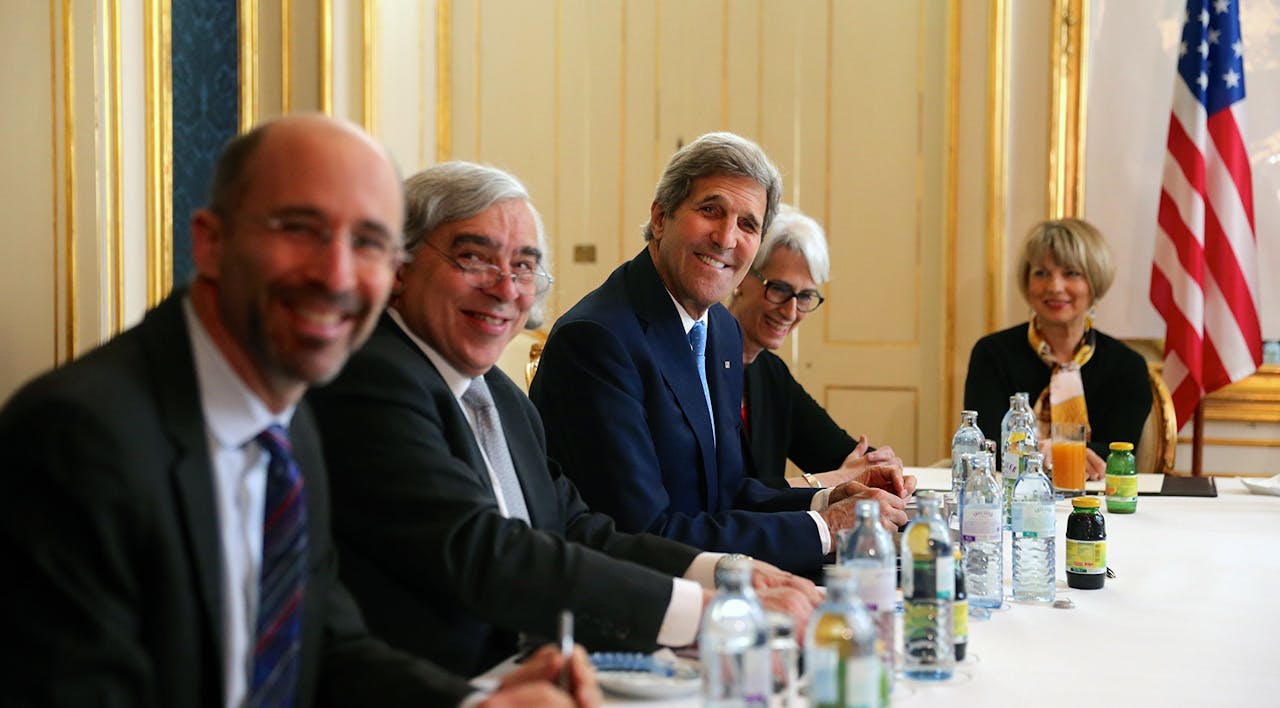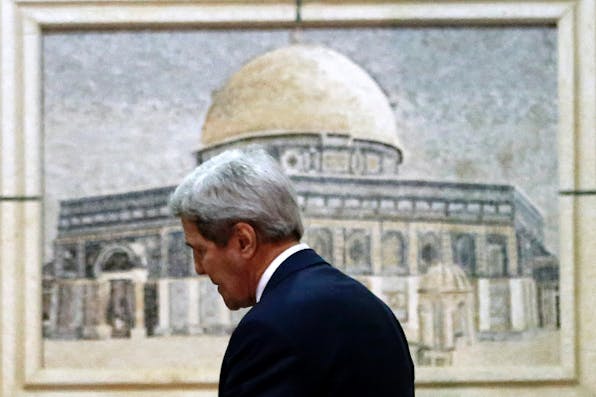
February 2021
The Return of the Peace Processors
For decades, America's foreign-policy establishment has, in the name of peace, incentivized conflict in the Middle East. Now that it's back in power, can it learn from its mistakes?
To many, the end of the Trump era feels like a restoration period, when old habits and frameworks can be put back in the position they held before the man from Queens came and upended the place. There is no doubt much truth to this idea, but it would be a mistake to see it as universally desirable. On foreign policy, there is likely no going back to the elite consensus from left and right regarding unfettered free trade and accommodation with China that reigned for decades before 2016. Something there has cracked open, and, in a quiet but palpable manner, there is no constituency in American politics right now that wants to put it back together.
Toward the less consequential but more emotive region of the Middle East, which has seen enormous change in the last few years, one might think that now too is a good moment to reevaluate the old habits of mind that were flung aside, sometimes wisely, sometimes with a reckless abandon, by the previous administration. But going by the signals sent by the Biden team—staffed, like their chief, by women and men with long careers—little reevaluation seems likely to happen: unlike with the issue of China, those now in the halls of American power seem set on gluing back together the cracks in the Middle East consensus. Perhaps it is because, also unlike with the issue of China, there is a large constituency that preferred things just the way they were.
The establishment conversation on Israel and its neighbors has been dominated for more than 30 years by members of a guild who have recently come to be referred to (often with a certain measure of snark) as the peace processors. Until recently, they have only ever been criticized from circles outside of official power (left-wing Israel-haters, right-wing isolationists, the Iran lobby, assorted Assad apologists, and so on); within the community of intellectuals, practitioners, journalists, civil servants, congressional-committee staff, and think-tank denizens who define the consensus on such matters, the dominance of peace-processor habits of mind have rarely been questioned. They’ve largely managed to escape partisan sniping too, a rarity in contemporary Washington. (Many of them are Democrats or moderate liberals, but a large cohort also served in the Reagan and both Bush administrations.)


